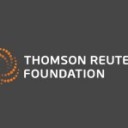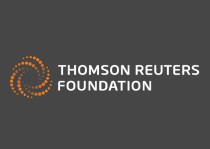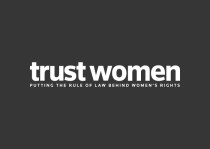How many slaves work for you? There are more people enslaved today than any other time in history. Slavery did not end in the late 1800s, but is alive and well and thrives comfortably amongst us, in our daily lives. Unless you have never worn clothes, driven a car, used a telephone, and eaten food, you are tainted by the scourge of modern-day slavery.
Indeed, slavery has merely changed form, a booming business worth more than $150 billion – three times more than the annual profit of Apple. Its employees are a young girl in Nepal duped and taken to a foreign land, raped, bought and sold for sex. They are the little boy in DRC using his bare hands to dig, wash, and lift the minerals in all of our mobile phones. They are a man sent to work on a Thai fishing ‘ghost ship’ to provide for his family, and kept on the boat for a decade, trapped by an alleged debt. And there are 36 million of them.
The goods and services that the enslaved provide have value. It is the people who provide them who have been deprived of theirs, and rendered disposable. As Livia Firth, Creative Director, Eco-Age says, a £5 shirt is not a bargain. It is a red flag. There is a story of slavery behind the label. The global hunt for value-for-money in labour over the past fifty years has led to a race to the bottom, resulting in extensive human rights abuses.
While philanthropy’s role is to unlock support for people to organize themselves, defend their rights and make their own decisions, we need to fight fire with fire. As market forces control the supply and demand of modern-day slaves, and global corporations wield more financial power than some nation states, these have the power to affect change – unbound by the red tape that affects so many other actors.
So what if the world’s biggest corporations decided to ensure that their own supply chains are transparent, ethical and free of slave labour? Some CEOs have taken bold steps. LUSH, the leading British cosmetics company, has dropped mica from its entire production chain upon discovering that it is often sourced through child labour in India. LUSH has not gone out of business. The company is still thriving on the high street.
The rule of law is also catching up. Here in the UK, the recent Modern Slavery Act includes a section on transparency in supply chains. Companies with a turnover of more than £36m and a presence in the UK will need to publish a what steps they have taken to ensure there is no slavery or trafficking within their own organisations or supply chains.
These are bold steps. But more needs to be done, and more widely. At this year’s Thomson Reuters Foundation Trust Women conference, we will be bringing together big business, philanthropists, entrepreneurs, NGOs and activists to discuss how to clean global supply chains of slave labour, and where to go from here. Together, we can create lasting change and inspire others to do more.
Cleaning the Supply Chain of Slave Labour is one of the panels at the forthcoming Trust Women Conference. The event takes place on November 17 and 18 in London. For more information http://www.trustwomenconf.com








Comments (0)